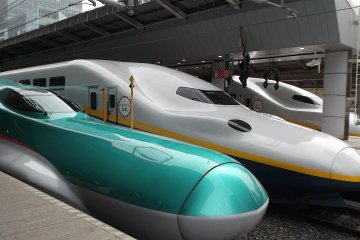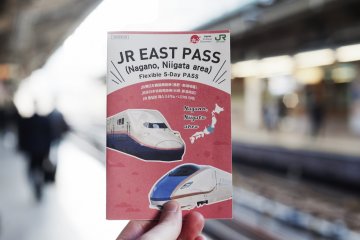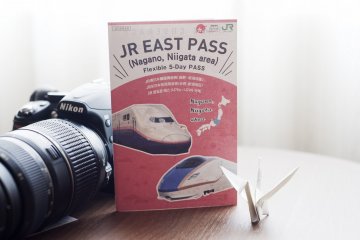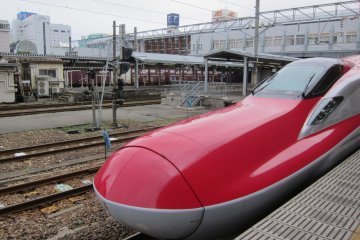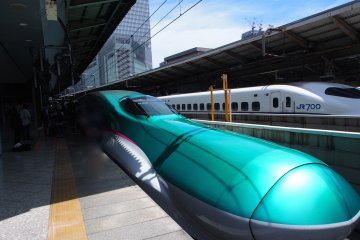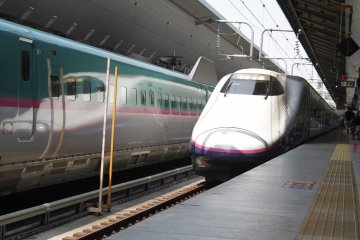The JR East Pass is a special discounted pass available exclusively to foreigners in Japan, including tourists and residents. It allows for unlimited rides across the JR East network within the designated coverage zone and offers incredible convenience at the same time.
For those who don't need the nationwide coverage or longer duration of the flagship JR Pass, the JR East Pass weighs in as a more affordable, more convenient option for many Japan-bound travellers.
Overview
The JR East Pass is exclusively available to visitors holding a non-Japanese passport.
The pass allows you to travel on unlimited trains—including the shinkansen or bullet train—for 5 consecutive days over a 14-day period.
Types
Since 2016, the JR East Pass comes in two varieties: a Nagano-Niigata version and a Tohoku version, both with incredible coverage zones. Both passes cover the entire Kanto region, spanning JR East lines from Shizuoka to Chiba (that includes Kanagawa, Saitama, Gunma, Tochigi, Ibaraki and—of course—Tokyo too). Now for the differences:
Tohoku Area JR East Pass

The Tohoku Pass extends up to northern Japan's Tohoku region and unlocks Aomori, Iwate, Miyagi, Akita, Yamagata and Fukushima. To the west, it stretches as far as Nagano's Sakudaira and Niigata's Yuzawa.
Nagano-Niigata Area JR East Pass

The Nagano-Niigata Pass covers central Nagano (including Matsumoto) and the entire Niigata prefecture.
Pricing
Prices are now cheaper than previous years, starting at just ¥27,000 for adults (12+ years old) and ¥13,500 (6–11 years old).
Updated: March 2025
| Type | Adult | Child |
|---|---|---|
| 5-day pass (Tohoku) | ¥30,000 | ¥15,000 |
| 5-day pass (Nagano/Niigata) | ¥27,000 | ¥13,500 |
When compared to the average price of a long-distance train ticket just about anywhere (if bullet train, then in the region of ¥10,000 on average), these prices offer unbeatable value.
Remember that rides are unlimited on the days you use the pass – that could mean a round-trip journey via shinkansen from Tokyo to Aomori on just one of your 5 days.
How to obtain
There are 2 methods to get a JR East Pass:
- Purchase the pass outside Japan – you can do this directly online or via a travel agent. Compared to buying in-country, buying in advance attracts a slightly cheaper rate.
- Purchase the pass inside Japan – you can do this at any of JR East's Travel Service Centers which operator at major JR East Stations including Tokyo station, Ikebukuro station, Shinjuku station, Haneda, Narita, Yokohama and several more. All you need is your passport.
If you ordered your JR East Pass outside Japan, the collection method is almost the same as buying in-country. You swap your Exchange Order (e-ticket) for the full pass at one of JR East's Travel Service Centers (see the full list), showing your passport for proof of eligibility.
Things you will need
You will need very little to get your JR East Pass but having the following definitely helps:
- A non-Japanese passport with temporary visitor stamp – which is needed for collecting your pass.
- Exchange Order or (if buying in Japan) ¥27,000 Japanese yen – if the purchase is completed online in advance and you will receive an Exchange Order.
- Travel Service Center Directions – to a convenient pickup location. There are many across Tokyo and east Japan, but Narita and Haneda Airports have you covered too.
When you have your pass, you are good to go, but we can recommend the following items (as well as your JR East Pass) when travelling around Japan:
- Passport — may be required for identification when using the JR East Pass.
- Smartphone/tablet — allowing you to use Google Maps directions or check train times.
- Sufficient cash — many places outside the big cities do not take credit cards. Read more here.
Advice
Plan your route beforehand. If you don't have regular Internet access, remember that after you have loaded a Google Map, you no longer need access to the internet.
If you get lost, ask people for directions: generally people will try and help you. Station staff are also very helpful.
Make sure the routes you will be taking are within the JR East zone and research to ensure the places you are visiting will be open when you go.
Generally the trains have available seats outside of rush hour, but you can of course make seat reservations either at the station or online.
Areas to visit
Once you have your pass, it is time to explore Japan! Do some research into the areas you want to visit. Popular destinations include include Tokyo, Disneyland in Chiba, Sendai (for Tohoku), Nagano & Kamakura.
The JR East Pass is valid on JR East trains including the Shinkansen (Bullet trains), the Narita Express and the Tokyo Monorail. If you are interested in staying overnight at your destination then research accommodation prior to visiting and plan in advance. Journey times to some popular destinations are as follows:
- Tokyo to Sendai: 1 hour 30 min.
- Tokyo to Aomori: 3 hours 40 min.
- Tokyo to Niigata: 2 hours 10 min.
This pass is a great way to explore areas and you can save a lot of money, especially if doing various trips in one day. It may also be helpful to get travel to the airport. I went on around 15 trains all together with the JR East Pass and saved a lot of money in the process. It is often easier and faster to get the Shinkansen trains instead of taking domestic flights and this pass allows you to do just that.



